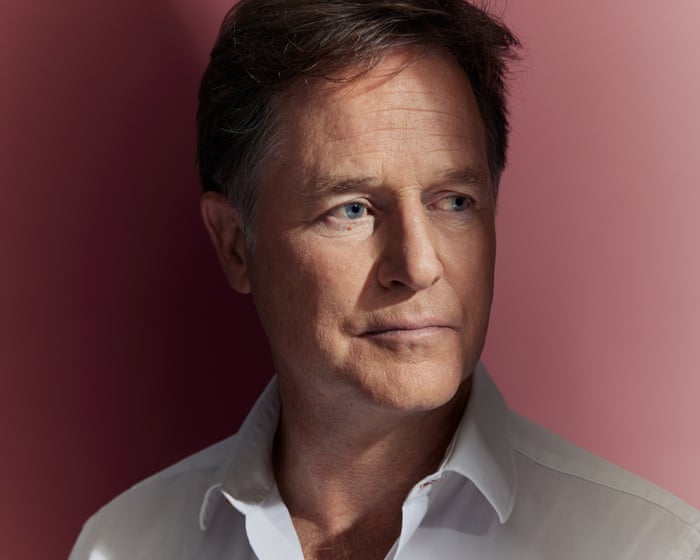I’m not from Silicon Valley. I didn’t study computer science, and I’ve never written a single line of code. My career wasn’t built around the processes, debates, or science of technological progress. I joined Meta—then still called Facebook—in 2018, coming from the world of British and European politics. I wasn’t quite sure what to expect.
As an Englishman, I’m always struck by the sheer size of America. When you first arrive in Northern California, it feels surprisingly distant from the power centers of the East Coast. It’s not just the nearly 3,000 miles separating you from Washington, D.C., and New York; the three-hour time difference makes you feel out of sync. The day’s news is already in full swing on the East Coast before the West has even woken up. Major European stories broke the night before. It feels like you’re a world away from everything. No wonder this place attracts those who want to strike out on their own, far from the prying eyes of corporate types. It’s a natural home for idealists who want to challenge the status quo.
There’s something intoxicating about Silicon Valley. It’s a place where people say “yes.” It draws in brilliant, creative minds, and ambition knows no bounds. Every obstacle is seen as an opportunity. Every sunny day could be the day something incredible happens. Anyone could come up with an idea that changes the world—and makes them incredibly wealthy. But it’s also a breeding ground for hubris, often of a macho variety. Confident, ego-driven men still dominate, while smart, capable women have to fight for their place every step of the way. The isolation that makes it a perfect incubator for new ideas also distances it from the lives of ordinary people. Its wealth sets it apart from their struggles, and its idealism ignores the messy realities of everyday life.
When I arrived at Facebook, the company was in shock. Many employees had joined when its reputation was entirely different: an exciting, idealistic place led by a boy genius, creating cool products that people adopted at an astonishing rate, generating huge profits, all while aiming to connect the world. Going from whiz-kids to public enemy number one was a culture shock few were prepared for. It reminded me of the Liberal Democrats during the coalition government—a group of idealists who wanted to change the world but couldn’t understand why people saw them as the bad guys.
One of the biggest culture shocks I experienced in Silicon Valley wasn’t really about the differences between the UK and the US. It was because, since I left for university in the mid-1980s, I had worked in worlds where success depended on the power of words. Politics, at its core, is a competition between different stories about how things should be. Liberalism, socialism, conservatism, fascism—they’re all narratives that offer different ways of seeing the world, diagnosing problems, and proposing solutions. You win elections when more people connect with your story and vision than with your opponents’.
But Silicon Valley is full of engineers, who see the world differently. Theirs is a world of facts and processes. The engineer’s approach is to identify a problem, fix it, and move on to the next. They operate in a maze of acronyms, as if language itself is a waste of time that needs to be boiled down to its most abbreviated form. When I arrived, I was thrown into a world of XFNs, STOs, and FOAs, where every roadmap has a playbook, every community is part of an ecosystem, and every subject is either a tl;dr—Everything has to be quantified. I remember an early meeting where a senior engineer asked me what the percentage chance was that a certain government would pass a specific law. I laughed, thinking it was a joke—the idea that politics could be reduced to a kind of pseudo-science seemed absurd. But he didn’t laugh. So I threw out a number, something like 23.67%. He nodded seriously. I’ve since learned that in Silicon Valley, persuasive stories mean nothing without data to back every claim and probabilities for every outcome. That approach has rubbed off on me. Thinking systematically, even if the science feels artificial, helps structure your thoughts and leads to clearer decisions.
But it’s also reductive. It turns everything into a commodity, stripping away nuance, instinct, and the intangible aspects of human nature. Early on, when I talked to engineers about data, they treated it like a carpenter treats wood—a raw material to build amazing things, not as people’s private information. That mindset has shifted over time, partly due to changing public expectations around privacy and data protection, and partly because regulators forced the company to change. Still, the emphasis on logic and reason over emotion and gut feeling might explain why Silicon Valley often seems out of touch with concerns beyond its brightly colored campuses.
No one holds a silence like Mark. He’ll let it linger, often to an uncomfortable degree, while he thinks.
I’m probably not the type of person you’d expect to find in Silicon Valley. I built my career in a suit and tie, not a hoodie and flip-flops. My first reaction to the hundreds of brightly colored, slogan-filled posters covering Facebook’s MPK campus (an acronym for Menlo Park) was to respond with gentle, English-style mockery. In one of my first meetings with a new team, a poster read, “Bring Your Authentic Self to Work.” To break the ice, I joked, “Please don’t bring your authentic self to work. You wouldn’t like mine. Just bring your inauthentic self from nine to five, go home and be yourself, and we’ll get along fine.” Silence. Afterwards, someone cautiously told me the comment had unsettled them. I knew then I wasn’t in Kansas anymore.
It’s well known that Mark Zuckerberg is a visionary innovator, but what struck me most about him were his endless curiosity and relentless competitiveness. Many people who achieve great success, especially at a young age, can become set in their ways and rest on their accomplishments. Mark, on the other hand, has the humility, drive, and appetite to keep learning and pushing forward.He is a relentless learner. If he feels he doesn’t know something, he questions those who do, absorbing every piece of insight he can. He thinks deeply, examining every angle. And no one—I mean no one—can hold a silence like Mark. I’m a talker; if there’s a lull in conversation, I’ll chatter away to fill it. Mark lets the silence linger as he reflects, often to an almost painful degree. But when he does speak, his response is always thoughtful and considered. He may come across as the ultimate engineer—all logic, no emotion—but that shouldn’t be mistaken for a lack of depth or curiosity. Quite the opposite.
At the same time, he might be the most competitive person I’ve ever met. And I say that as a former frontline politician and a product of the British private school system, so I’ve encountered my share of competitive people.
One way this competitiveness shows is through Mark’s passion for mixed martial arts (MMA). He’s a big UFC fan and takes his own training very seriously—so much so that his MMA involvement had to be disclosed to investors as a potential business risk. He may have entered the public eye two decades ago as a skinny nerd, but he’s certainly built himself up since. Just ask Elon Musk, who challenged Mark to an MMA fight on X and then made all sorts of excuses to avoid stepping into the cage with him. Mark’s dedication to MMA is so intense that one morning during a management offsite, he insisted some of his top executives join him for a training session at his custom-built gym. We paired off to practice moves under the watchful eyes of Mark’s professional instructors, which meant I ended up wrestling with my then-deputy, Joel Kaplan. At one point, we were in a position called the Domination Mount, with Joel straddling me as we grappled awkwardly—a little too close for comfort, to say the least. It was corporate bonding on a whole new level.
Joel later joked that he’d thought about reporting it to our then-head of HR, Lori Goler, but when he looked up, he saw that she had Mark Zuckerberg in a chokehold. Surviving that ordeal at least left Joel battle-hardened, if in a strange way, to take on the challenge of succeeding me as head of global affairs when I left Meta some time later.
This is an edited extract from How to Save the Internet by Nick Clegg, published by Bodley Head at £25. To support the Guardian, order your copy at guardianbookshop.com. Delivery charges may apply.
Frequently Asked Questions
Of course Here is a list of FAQs based on the topic of Nick Cleggs reflection on his culture shock at Meta
Beginner Definition Questions
Q Who is Nick Clegg and what is his role at Meta
A Nick Clegg is a former Deputy Prime Minister of the UK He is now the President of Global Affairs at Meta responsible for the companys global policy and communications
Q What is the MMA gym story about
A Shortly after joining Meta Clegg was invited to an MMA gym by his deputy The outing ended with them actually sparring in the ring He used this story to illustrate the intense unconventional and physically engaged culture of Silicon Valley which was a shock coming from his background in UK politics
Q What does culture shock mean in this context
A It refers to the feeling of disorientation surprise and adjustment someone experiences when they are suddenly subjected to an unfamiliar culture way of life or set of attitudes For Clegg it was the shift from the formal traditional world of British politics to the informal highenergy and handson culture of a major tech company
Advanced Deeper Insight Questions
Q What was Clegg trying to illustrate by telling this story
A He was highlighting the stark contrast between his old and new worlds In politics building relationships might happen over formal dinners or meetings In Silicon Valley it can happen through intense physical shared experiences that break down traditional corporate hierarchies and formalities
Q Is this type of activity common in Silicon Valley tech companies
A While not every executive spars in a gym the ethos is common Many tech companies emphasize nontraditional teambuilding pushing physical and mental boundaries and fostering a culture that rejects formality in favor of directness and shared experience
Q What are the potential benefits of this kind of corporate culture
A Proponents argue it builds strong camaraderie breaks down communication barriers encourages risktaking and fosters a dynamic and innovative environment where people arent afraid to challenge each other directly
Q What are some common criticisms or problems with this culture



